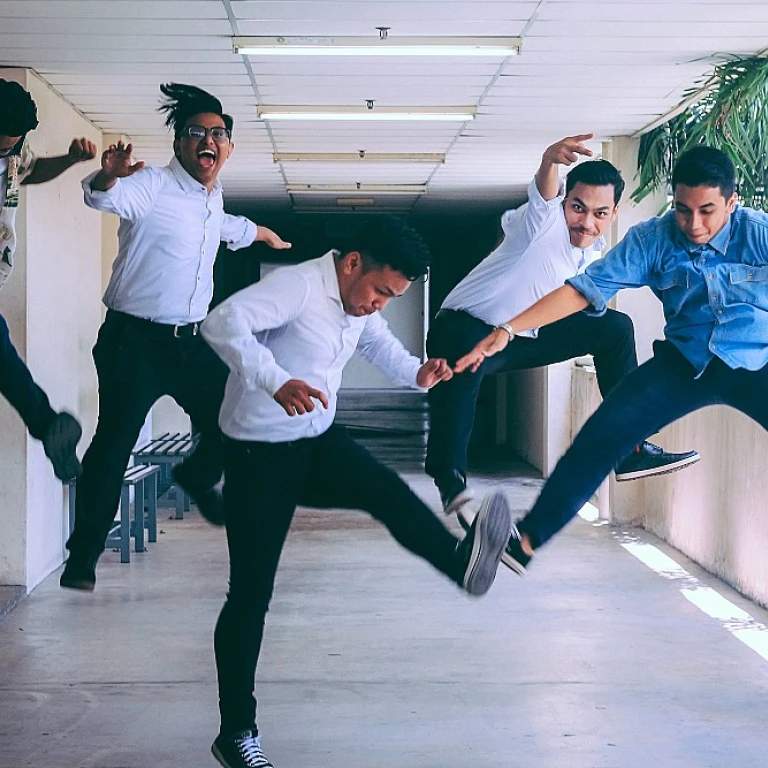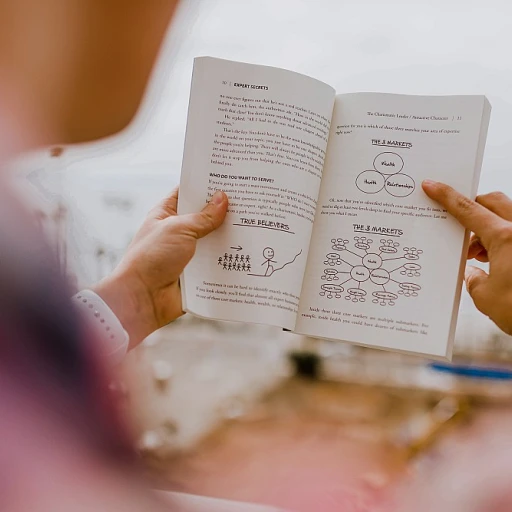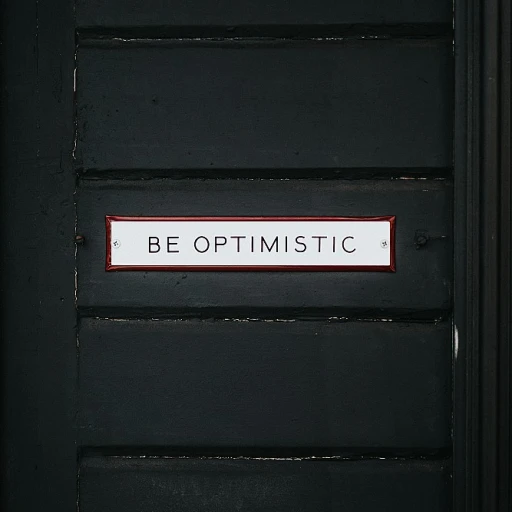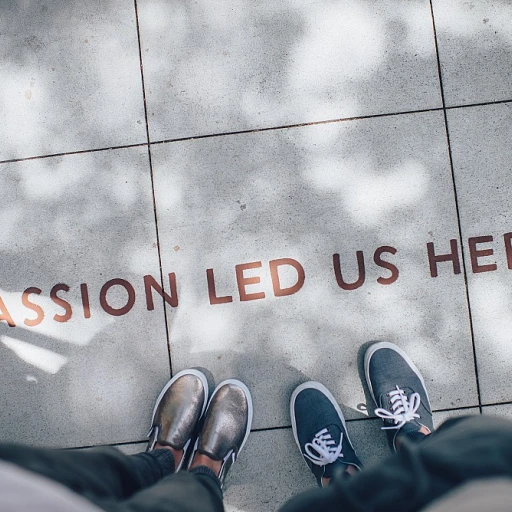Understanding Habit 6: Synergize
Exploring Synergy: More Than Just a Habit
Synergy, a concept popularized by Stephen Covey in his renowned "habits highly effective people" framework, refers to the outcome achieved when individuals collaborate to create a "greater sum" than they could independently. At its core, the "synergize habit" emphasizes that the "sum parts" can be exponentially stronger when differences and strengths unite.
In professional mentoring, synergy involves valuing differences among people and ideas to uncover the "best solution" that might not be obvious initially. This "synergize habit" is about understanding that when mentors and mentees open their minds and communicate effectively, they can form innovative solutions better than anyone could have anticipated alone.
Achieving synergy requires prioritizing "levels communication" where honesty and genuine dialog not only build "trust" but also nurture creative collaboration. It's essential to "seek understand" first before being understood. This requires an open-mindedness and emotional intelligence that can unlock hidden potentials and bring about meaningful change.
It's crucial to realize that synergy goes beyond mere cooperation. It requires a conscious effort to not only recognize and accept but celebrate the differences people bring. By leveraging these diversities, mentoring relationships can transform, driving growth that benefits all parties involved. This approach encourages participants to "create effective" partnerships where the collaboration leads to greater outcomes and mutual benefit.
Building Collaborative Relationships
Unlocking the Power of Collaborative Bonding
Building strong collaborative relationships in professional mentoring can be likened to weaving a rich tapestry where diverse threads harmoniously align, creating a greater sum of parts. In the practice of Habit 6, synergize, from the renowned framework of highly effective people, collaboration is a cornerstone. This principle emphasizes the importance of open communication and valuing differences to forge strong connections.
Forging these relationships demands open-mindedness and a commitment to understanding and embracing the unique differences in each individual. By seeking to understand first, mentors and mentees cultivate an atmosphere of trust and emotional safety where creative solutions to challenges can emerge.
Effective mentors leverage creative collaboration by blending different ideas and perspectives, much like mixing various colors to create a vibrant masterpiece. In these partnerships, differences among people become powerful forces that drive change, yielding solutions better than any one person could achieve alone. Recognizing that the synergize habit is not merely about cooperation but about creating something truly novel and impactful is crucial.
At different levels of communication, both mentors and mentees must be willing to lower barriers and engage in open dialogues. This approach fosters a dynamic exchange of ideas and encourages mutual growth, leading to long-term success in mentoring relationships. Here, the synergy lies in embracing differences, transforming them into collaborative strengths.
For a deeper dive into enhancing collaborative skills, check out
Mastering the Art of Coach Marketing, a resource that offers further insights into harnessing the power of effective communication in mentoring.
Encouraging Mutual Growth
Facilitating Progressive Development Through Mutual Growth
In the realm of professional mentoring, encouraging mutual growth stands as a cornerstone for highly effective mentorship and fosters a thriving mentee-mentor relationship. By adopting the principles of synergy as outlined by
Stephen Covey, mentors and mentees can transcend individual differences and create a dynamic where the sum of their collaboration equates to a greater whole.
Mentoring is more than sharing knowledge; it involves a two-way exchange where both parties benefit from the relationship. This exchange drives change, making it crucial for teams to leverage open and effective levels of communication, which is a benchmark of successful mentoring. Through creative collaboration, mentors and mentees can share ideas that lead to solutions better suited for varying professional challenges.
It is essential to embrace the differences people bring to the table. Valuing differences is not merely recognizing distinct perspectives but actively integrating them to harness creative solutions to complex problems. Through this synergistic habit, mentors emphasize the importance of appreciating the unique contributions each person can offer, ultimately leading to a progressive evolution in professional competencies. The role of the mentor, therefore, extends beyond instructing the mentee; it involves building emotional trust that encourages open-mindedness and exploration of innovative ideas.
By forging a nurturing environment where these principles flourish, mentors can cultivate an atmosphere that is conducive to individual growth while steering mentees toward realizing their potential. The path of mutual growth not only enhances individual competencies but also prepares both mentors and mentees to approach challenges with an enriched perspective and the tools needed to arrive at the best solutions collaboratively.
Overcoming Challenges in Synergy
Embracing Differences to Create the Best Solutions
In the realm of professional mentoring, challenges in synergy often stem from unacknowledged differences. People possess diverse ideas, backgrounds, and ways of thinking, which can create friction rather than collaboration if not managed with emotional openness and open-mindedness. Yet, understanding these differences is the first step toward creating more effective solutions. By learning to value differences, mentors and mentees can transform potential sources of conflict into opportunities for growth and change.
Effective communication is paramount. As Stephen Covey, the creator of the "synergize habit," advocates, seeking first to understand rather than to be understood is a crucial skill in overcoming challenges related to the synergy habit. This mindset fosters mutual respect and trust, allowing for levels of communication that are not only honest but also constructive.
Transforming Friction into Productive Forces
The key takeaway from mentoring partnerships that succeed in synergy is that friction can be transformed into productive forces. Differences between individuals can lead to innovative solutions if they are channeled correctly. The collective capability of a team—once aligned—results in a sum that is greater than its individual parts.
To facilitate this transformation, mentors should encourage inclusive discussions where all ideas are welcome. This inclusive environment serves as a breeding ground for creative collaboration. The mentor's role is to guide the dialectic process, leading teams through discomfort into a place where solutions are better aligned with shared goals.
Adapting to these challenges requires both parties to exhibit a willingness to adapt and to practice habits highly regarded for fostering synergy. By doing so, the partnership can not only achieve its objectives but also forge a path for continual learning and shared success.
Case Studies: Successful Mentoring Partnerships
Illustrative Stories of Effective Partnerships
In the realm of professional mentoring, many examples stand out where mentors and mentees have harnessed the power of synergy to achieve remarkable outcomes. These stories demonstrate how valuing differences and combining forces can lead to creative solutions that are greater than the sum of their parts.
- Mutual Trust and Open-Mindedness: One mentoring story involves two individuals from different cultural backgrounds. Instead of letting differences in perspectives and communication styles become a barrier, they embraced these variances as learning opportunities. Through open communication and a high level of trust, they developed a creative collaboration that led to innovative solutions that neither could have conceived alone.
- Leveraging Strengths for a Greater Sum: In another example, a mentor worked with a mentee possessing unique technical skills, while the mentor offered extensive industry experience. By synergizing their strengths, they created a solution that brought effective change to their team, leading to better outcomes and elevating the team's performance levels. This process involved seeking to understand each other's capabilities and leveraging them to create a highly effective team dynamic.
- Effective Communication and Emotional Intelligence: An illustrative case showcases how mentors and mentees who prioritize emotional intelligence and effective communication can break down barriers. In this duo, enhancing levels of communication was key and attributed to their mutual growth. As their relationship evolved, they consistently achieved solutions better than previously thought possible by being open and adaptable to new ideas.
These cases illustrate the essence of Steven Covey's principles in practice, revealing how the synergy habit, when understood and practiced effectively, results in outstanding collaborative success. Embracing differences among people through the Covey habit can create a synergize environment where all parties benefit and grow.
Practical Tips for Mentors
Enhancing Your Mentoring Skills for Productive Synergy
To foster an environment where collaboration shines, mentors need to continuously improve their ability to synergize effectively with their mentees. Recognizing and adopting key practices can lead mentors to achieve greater outcomes, creating an environment where skills and ideas thrive.
- Cultivate an Open Mindset: Embracing an open mind enables mentors to appreciate the differences people bring, allowing a free exchange of ideas. This highly effective habit of valuing differences can lead to creative solutions, turning diverse opinions into a synergized strength.
- Focus on Communication: Effective communication stands at the core of change and is essential to building trust. Mastering levels of communication ensures mentors can convey their insights clearly, while also seeking to understand their mentees' perspectives—a foundational element of synergetic collaboration.
- Foster Mutual Respect and Trust: Trust is the backbone of any successful mentoring partnership. Building an emotional connection and demonstrating respect for the mentee's perspective encourages an environment where both can collaboratively seek the best solution, embodying Stephen Covey's synergize habit.
- Encourage Creative Problem-Solving: Encourage mentors to create an atmosphere ripe for out-of-the-box thinking. Stimulate creativity by supporting gradual, experimental approaches to finding better solutions. By merging efforts and ideas, the mentor and mentee can reach a solution that is greater than the sum of its parts.
By intentionally applying these best practices, mentors are better equipped to guide their mentees towards greater collaboration and growth, transforming the mentoring experience into an art form. These practices enable both parties to harness their differences, fostering an environment where both mentor and mentee emerge stronger and more knowledgeable.








